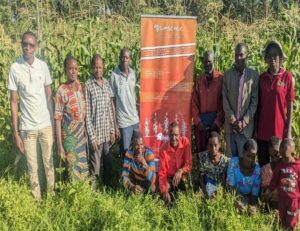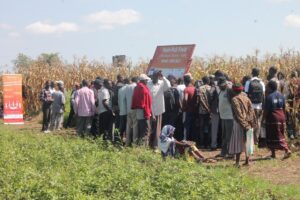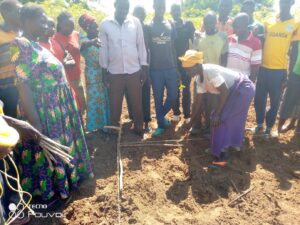
From Trials to Trust: Tanzanian Farmers Embrace Push-Pull Technology in Mara Region
In the vibrant agricultural landscapes of Tanzania’s Mara Region, farmers across the districts of Bunda, Butiama, and Tarime are witnessing firsthand how sustainable innovation can transform their fields. Supported by the UPSCALE and led by the Tanzania Agricultural Research Institute (TARI) Ukiriguru, this region has become a living laboratory for the community-led adoption of Push-Pull Technology (PPT). Together with partners from the International Centre of Insect Physiology and Ecology (icipe), a team of researchers and local facilitators organized an intensive farmer assessment in April this year in order to evaluate how different cropping systems, including Push-Pull, perform in real-world conditions, and to listen closely to the voices of those who matter most: the farmers themselves. What Is Push-Pull Technology? Push-Pull is an ecologically based pest management strategy that uses companion planting to both repel and trap pests. Farmers intercrop maize with Desmodium, a “push” plant that repels stemborers and FAW, and plant Napier grass or Brachiaria on the field borders to “pull” pests away. The result: less pest damage, better soil health, and more forage for livestock. The Trial: From Mother to Baby Plots Across Bunda, Butiama, and Tarime districts, farmers engaged in a structured assessment of different PPT setups: Push-Pull






